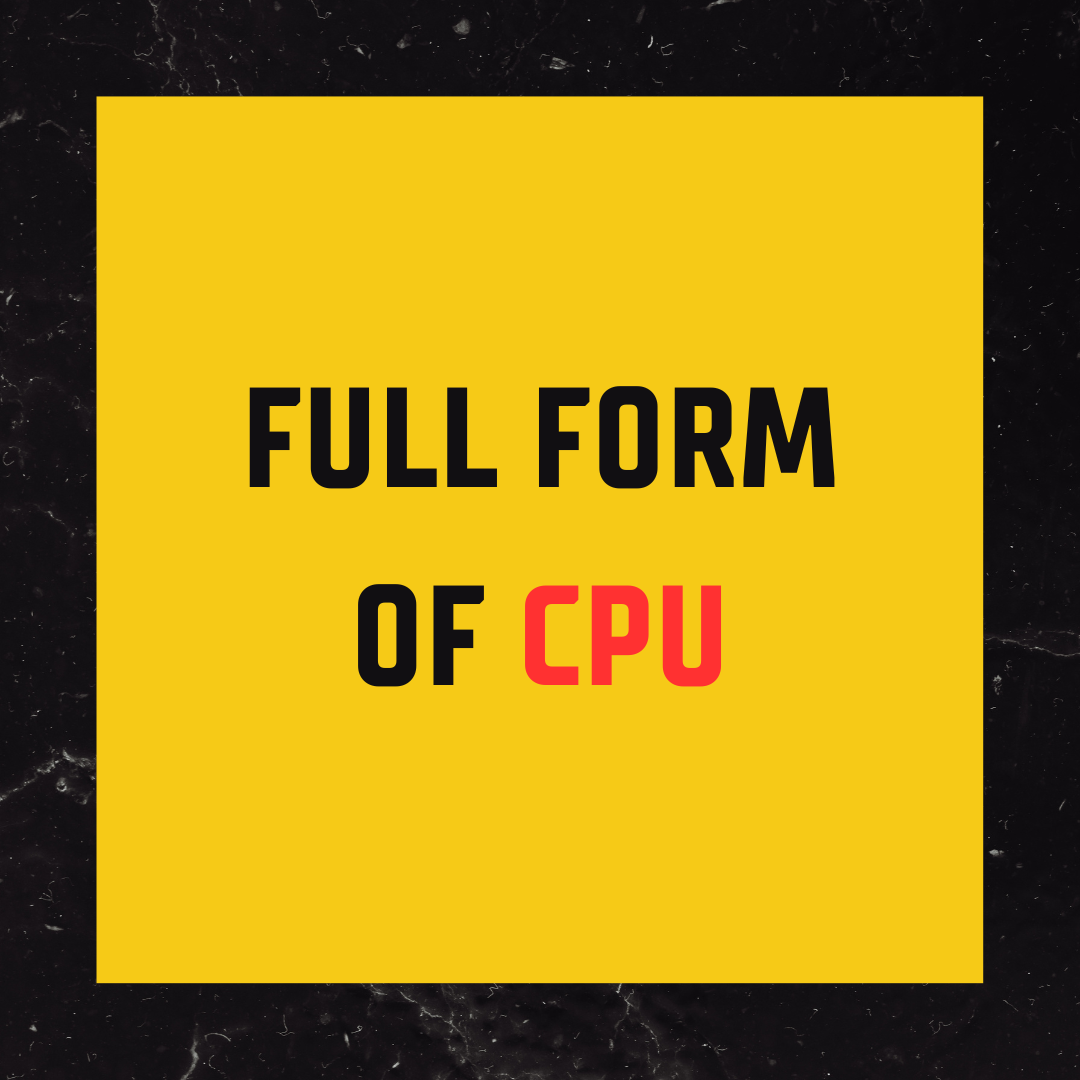What is the Full Form of CPU?
The Full form of CPU is Central Processing Unit, is the fundamental component of computer apparatuses. It performs calculations and commands necessary for program functionality, acting as the brain. In other words, the CPU interprets and performs binary instructions, which allows your computer to process information. It also arranges for the interactions of different hardware parts. The CPU maintains its position as the leader in processing power as technology develops, guaranteeing a flawless computing experience.
Various Types Of CPU:-
1. Complicated Instruction Set Computing, or CISC
CISC processors include an extensive instruction set that enables them to execute intricate tasks with just one instruction. Although their hardware design may be considerably more sophisticated, they are renowned for their adaptability.Intel’s x86 architecture, for instance.
2. Computers with Reduced Instruction Sets (RISC)
In contrast, RISC processors only require one clock cycle to execute a streamlined set of instructions. Compared to CISC architectures, RISC systems frequently require more instructions to do specific tasks, although possibly having a simpler design. ARM architecture is one example.
3. CPUs with Many Cores
In order to facilitate parallel computing, multi-core processors combine several CPU cores onto a single chip. The ability of the CPU to manage several tasks at once thanks to its design improves performance.AMD Ryzen, Intel Core i7, as an example.
4. Graphics Processing Unit, or GPU
Although their primary function was graphics rendering, contemporary GPUs are also capable of parallel processing, which makes them useful for general-purpose computing. They cooperate with the CPU to speed up specific kinds of computations. Examples are AMD Radeon and NVIDIA GeForce.
5. Quantum Processors
Quantum processors utilize the concepts of quantum physics to facilitate computation. Quantum bits, or qubits, are different from conventional bits in that they can exist in more than one state at once. This property enables quantum processors to execute certain operations tenfold quicker than their classical equivalents. IBM Quantum Processor, for instance.
What are the Different Parts of CPU:-
1. Unit of Control (CU)
The actions of other CPU components are managed and coordinated by the control unit. It retrieves, decodes, and manages the data flow within the CPU of the application.
2. The ALU, or Arithmetic Logic Unit
The ALU carries out comparisons, AND, OR, subtraction, addition, and other arithmetic and logical operations. It carries out the directives given by the control unit.
3. Registers
Within the CPU, registers are compact, fast storing areas. They hold the information and commands that the CPU is currently processing. The accumulator, data registers, and address registers are examples of common kinds.
4. Memory Cache
Cache memory is a sort of compact, fast volatile computer memory that stores data and frequently used computer programs. It also gives the processor fast access to data.
5. Timepiece
The clock provides a regular pulse, or clock cycle, that synchronizes the operations of the CPU components. It sets the pace at which tasks are completed and instructions are carried out.
CPU Full Form in Hindi/ CPU ka Full Form in Hindi
CPU का पूरा नाम केंद्रीय प्रसंस्करण इकाई (Central Processing Unit) है। इसे अंग्रेजी में सीपीयू (CPU) कहा जाता है। यह कंप्यूटर का दिमाग होता है और सभी प्रसंस्करण कार्यों को करने के लिए जिम्मेदार होता है।
Conclusion – Meaning of CPU
In summary, knowledge of CPU types and their constituent parts offers insight into the variety and intricacy of these vital parts that power computing devices, ranging from high-end servers to desktop computers. The current computing environment is being shaped by the ongoing advancements in CPU technology, which provide a look into the future of quicker and more effective processing power.
FAQs – CPU Full Form
1. What is a CPU?
Ans– The CPU is the brain of a computer. It is responsible for executing instructions and processing data. It is a complex piece of hardware that performs various tasks, such as:
- Arithmetic operations (addition, subtraction, multiplication, division)
- Logical operations (AND, OR, NOT)
- Data transfer
- Control unit operations
2. How important is the CPU for computer performance?
Ans– The CPU is one of the most important components of a computer, and it has a significant impact on overall performance. A faster CPU can lead to faster application loading times, smoother multitasking, and improved gaming performance.
3. How do I choose the right CPU for my needs?
Ans– The best CPU for you will depend on your individual needs and budget. Consider factors such as:
- The type of computer you are using (desktop, laptop, server, etc.)
- Your budget
- The tasks you will be using the computer for (gaming, video editing, office work, etc.)
- The features and specifications of the CPU (clock speed, cores, threads, etc.)
4. Where is the CPU located in a computer?
Ans– The CPU is typically located on the motherboard, the central circuit board of a computer. It is often placed in a socket designed specifically for it and covered by a heat sink and fan to keep it cool.
